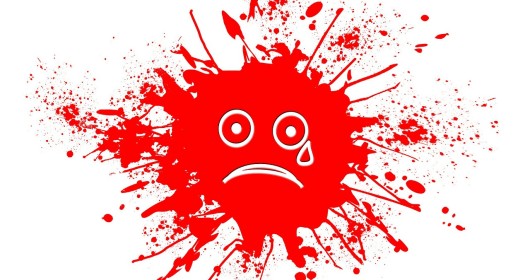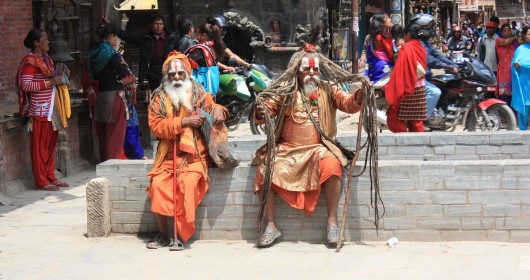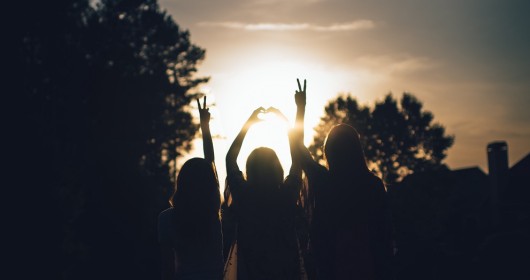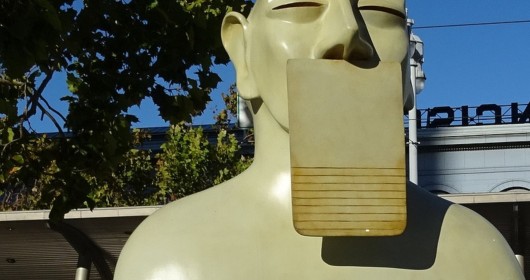Understanding Plurality : My lessons from India and France

Being an Indian and a student, although in France, I feel it pertinent to write about the JNU issue. Somehow we are prone nowadays to paint things black and white and it is never that straightforward, especially in a democracy with as much diversity as in India.
I grew up in a neighbourhood with a predominant Islamic population. And I had Christians as my neighbours. I enjoyed decorating the Christmas tree as much as I enjoyed doing puja on Ganesh Chaturthi. My love for sheer khurma (kheer) on Id was no different from my obsession for Pongal on Sankranti. This is the innocence I grew up with. I would not notice the religion of a person before lending a friendly hand. With these friends, even today I have discussions on several things under the sky. We do not shy away from discussing sensitive topics like religion. Inspite of disagreements, we stay friends as we know that we do not have the intent to offend the other. The only purpose is a healthy discourse. I believe, most of us are brought up in similar environments back home. There might be an odd pair of friends who broke up the friendship because of difference of opinion but they are still in a minority.
Here in France too, I find that the French are highly opinionated about most things. They do have a healthy discourse too. However, the difference is they do not shy away from going slightly below the belt during the course of discussion. This happens only among closely knit friends or groups. That is the flavour of sense of humour they enjoy. This could also be the reason they are perceived as rude. I accepted this nature of theirs during my early days in France. This ensured that I do not get offended and have thoroughly enjoyed discussions with them on various topics. We would argue to the extremes but when it is time to end, we would say “Let us agree to disagree”.
In both places, I have not been judged as a person because of my opinions. My opinions about various things are biases based on the way I lead my life. I think, “Unbiased Opinion” is an oxymoron. Every opinion has bias in some way or the other. In a democracy, when crucial decisions are to be made, one needs to identify the bias and nullify its effect of it on the final decision. The kind of discourse in present day India worries me a lot because it is constantly judgmental. It happens mostly on print media, television media or social media. These are all wonderful tools of expression. But these are also tools, which need to be used with a lot of discretion and responsibility. In my opinion, print media has been more responsible than the other two. TV media, highly driven by TRPs has got itself into a vicious circle. It organizes debates with polarized views and dramatics, which the viewers enjoy and since the viewers drive their TRPs the cycle continues! The only exception with lesser bias have been Rajya Sabha TV and Lok Sabha TV. They give pluralistic perspectives on the debates.
Social media has performed the worst of all, which is us, people like you and me. One of my good friends very aptly put it as:”Social media actually creates a hidden eye of judgement. People self-censor themselves and shy away from expressing controversial opinions. They do this only when offered anonymity, but then they get very vicious. What we need is a common space that is friendly, but at the same time, encourages expression. What we have today is a social media that amplifies confirmation bias. This by itself is not the most severe problem. If people numb themselves down as a consequence of confirmation bias, then our language will degenerate into binary (or unary) clicks. Such a language will not be sufficient to give emotional support to us humans.”
I shall give a very simple example of how the bias judges a person:
- I am an atheist, i.e., I do not believe in god.
- I enjoy celebrating festivals.
A common perception is an atheist does not celebrate any festival. A friend would know that I enjoy celebrating festivals because I see it as family time. However, a person who does not know me will most likely jump to a conclusion that I am a hypocrite. The reason for this judgement is “Correlation” is confused with “Causation”.
Now let us come to a slightly complex issue.
- I respect others beliefs and will never offend any religion e.g. I wont wear slippers into a temple or make fun of Islamic traditions.
- I also believe in Free speech.
I believe, intent plays a huge role and the context needs to be defined explicitly when I say something about a religion as it could offend a large group of people. If I do offend a religion or religious practice and the intent was to offend the group of people then it is highly condemnable. However, if the intent is a social discourse to understand each others perspective then it is free speech. To explain this, I shall give a few examples.
- Charlie Hebdo Attack. Charlie Hebdo published an offensive cartoon on Prophet. As I said earlier, it was a typical under the belt french humour. However, I do not subscribe to such humour. I do not know their intent of Charlie Hebdo so I cannot comment. But I completely disagree and vehemently oppose anyone killing them because I am fundamentally against violence. I also joined the solidarity march. Now, a common perception, since I attended the solidarity march, could be that I am in favour of Charlie Hebdo publishing such cartoons, which is not true.
- Azam Khan and Kamlesh Tiwari. Azam khan provoked Kamlesh Tiwari who in turn made a statement offending the prophet. Both of them crossed the line because their intent was to offend each other. I am against both. However, I am also against the riots and violence that followed and am vocal about it. If I am vocal about condemning the riots, I will be termed a Hindu fundamentalist, which I am not.
We deal with much more complex issues than the one stated in a democracy. And falling pray to judgement or taking a highly biased view derails the process of discourse. This is precisely what is happening on social media regarding the JNU case these days. It is very important for us to not fall in the trap of judging others and derailing the discourse process. Let us accept responsibility as social media users, like we expect other forms of media to report responsibly. We are a pluralist society and people have a million views and sometimes it may appear contradictory, but who are we to judge especially without knowing the whole story? It isn’t possible to make the world homogeneous, because there will always be differences. I can’t emphasize on plurality enough being an Indian who now lives in France.





